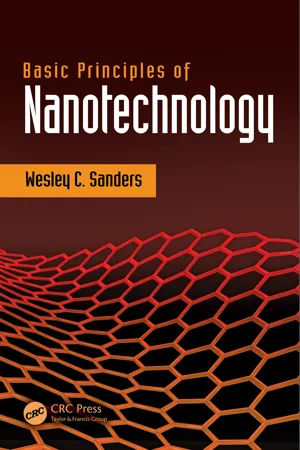The source of the book
This book is published for the public benefit under a Creative Commons license, or with the permission of the author or publisher. If you have any objections to its publication, please contact us.

Basic Principles of Nanotechnology Book PDF
(0)
Author:
Wesley SandersNumber Of Downloads:
151
Number Of Reads:
252
Language:
English
File Size:
13.33 MB
Category:
TechnologySection:
Pages:
195
Quality:
excellent
Views:
3000
Quate
Review
Save
Share
Book Description
Basic Principles of Nanotechnology by Wesley C. Sanders is an accessible and comprehensive introduction to the fundamental concepts that drive modern nanotechnology research and industry. Designed for students, educators, and professionals entering the field, this book explains how materials behave at the nanoscale and why those properties differ significantly from their bulk counterparts.
The book provides a clear overview of the structure, electrical behavior, and physical properties of nanoscale materials commonly used in nanotechnology-based applications. Readers are introduced to the operation of nanoscale transistors and the key fabrication processes involved in building these devices. Sanders also explores emerging research that goes beyond traditional silicon electronics, highlighting the use of carbon nanotubes, graphene, molecules, and other advanced materials to create next-generation electronic components.
A major strength of the book is its practical focus on fabrication and characterization techniques. It explains widely used tools and processes such as scanning electron microscopy (SEM), atomic force microscopy (AFM), electron-beam lithography, photolithography, and etching methods, providing readers with a foundational understanding of how nanostructures are created and analyzed in laboratory and industrial settings.
The text emphasizes nanomaterials that play a central role in both academic research and consumer products, including metal nanoparticles, quantum dots, conductive polymers, carbon nanotubes, and graphene. Each chapter opens with clearly defined learning objectives that outline the core topics covered, helping readers navigate complex material efficiently. End-of-chapter questions reinforce key concepts and support classroom use and self-study.
Wesley Sanders
Wesley C. Sanders is currently an assistant professor at Salt Lake Community College. He teaches courses in nanotechnology, materials science, chemistry, and microscopy. While serving as an assistant professor, he has published articles in the Journal of Chemical Education describing undergraduate labs for use in introductory, nanotechnology courses. He earned a BSEd. in science education from Western Carolina University (1999). Later, he earned a M.S. in chemistry from the University of North Carolina at Charlotte (2005) and a Ph.D. in chemistry from Virginia Tech (2008). His initial experiences with nanotechnology occurred while studying self-assembled monolayers on gold with a scanning electrochemical microscope as a doctoral student at Virginia Tech. After receiving his Ph.D., he examined bacterial nanofilaments with an atomic force microscope while working as a postdoctoral researcher at the U.S. Naval Research Lab in Washington D.C.
Earn Rewards While Reading!
Every 10 pages you read and spent 30 seconds on every page, earns you 5 reward points! Keep reading to unlock achievements and exclusive benefits.
Read
Rate Now
5 Stars
4 Stars
3 Stars
2 Stars
1 Stars
Basic Principles of Nanotechnology Quotes
Top Rated
Latest
Quate
Be the first to leave a quote and earn 10 points
instead of 3
Comments
Be the first to leave a comment and earn 5 points
instead of 3